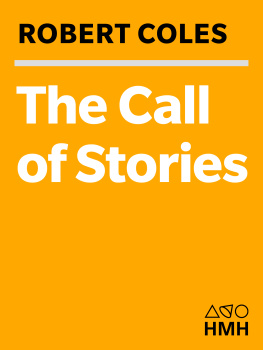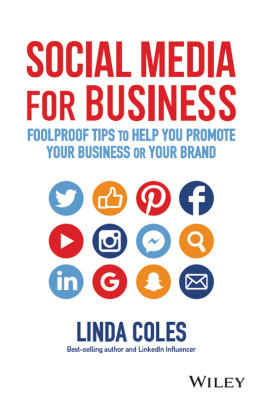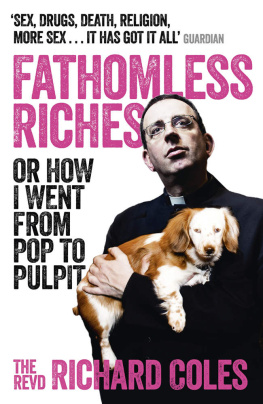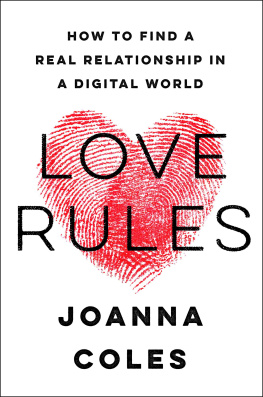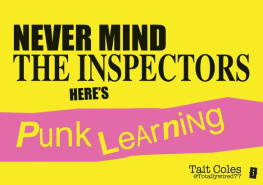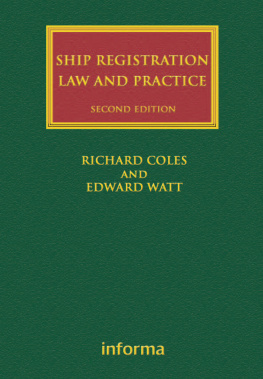Copyright 1989 by Robert Coles
All rights reserved
For information about permission to reproduce selections from this book, write to Permissions, Houghton Mifflin Harcourt Publishing Company, 215 Park Avenue South, New York, New York 10003.
www.hmhco.com
The Library of Congress has cataloged the print edition as follows:
Coles, Robert.
The call of stories: teaching and the moral
imagination / Robert Coles.
p. cm.
A Peter Davison book.
Bibliography: p.
Includes index.
ISBN 0-395-42935-8
ISBN 0-395-52815-1 (pbk.)
1. Coles, Robert. 2. Coles, RobertBooks and reading. 3. LiteratureStudy and teachingMoral and ethical aspects. 4. EducationMoral and ethical aspects. 5. Books and readingMoral and ethical aspects. 6. Authors, American20th centuryBiography. 7. PsychiatristsUnited StatesBiography. 8. EducatorsUnited StatesBiography. I. Title.
PS 3553.047456 Z 463 1989
808'.0092'4dc19 88-26659
CIP
e ISBN 978-0-547-52459-7
v1.1214
Chapters 4 and 8 were previously published, in somewhat different form, in Poetry magazine, vol. 152, no. 5 (August 1988) and the American Poetry Review, vol. 17, no. 6 (NovemberDecember 1988), respectively.
The author is grateful for permission to quote from the following works:
William Carlos Williams, Paterson. Copyright 1946, 1949 by William Carlos Williams. Reprinted by permission of New Directions Publishing Corp.
Excerpts from Dying: An Introduction and A Deathplace, from Hello, Darkness, by L. E. Sissman. Dying: An Introduction copyright 1967 by L. E. Sissman. First appeared in The New Yorker. A Deathplace copyright 1969 by L. E. Sissman. First appeared in Harpers Magazine. By permission of Little, Brown and Company.
Jorie Graham, Erosion. Copyright 1983 by Princeton University Press. Reprinted by permission of Princeton University Press.
To the memory of my mother and father
Introduction
T HIS BOOK BEGAN in hearing my mother and father read to each other from novels by George Eliot and Dickens and Hardy and Tolstoy during my elementary school years. My brother Bill (now a professor of English) and I had our own agendaa host of radio programs to which we were devoted. While we responded with noisy laughs to Easy Aces or Amos n Andy, our parents were trying to understand how England changed in the Age of Reform (Middlemarch) or how Russia survived Napoleons ambitious, greedy plunge eastward (War and Peace). I remember one evening, when my father was saying good night to me, we had, as was our custom, what he called a brief evening chat. Putting on a serious face and feeling a bit nervous at the prospect of challenging what by then I knew to be a much-cherished activity, I managed to voice my query: Why do Mom and you read out loud to each other? He wasnt surprised by the question, but he wanted to know how much thought Id given to the subject. He asked me whether Id discussed his reading habits, and my mothers, with anyone else. I told him that Bill and I had indeed learned that none of our neighborhood friends had parents who were so inclined. I also told him that I had tried reading a book, Robin Hood, with a good friend who lived next door, Benedict, and we had concluded that the exercise was slow, cumbersome, boring. Dad, sensing more at stake, wondered whether Id be happier if he and Mom read upstairs rather than in our living room.
I recall the brief, unsuccessful fight I waged to keep a straight face. He never pushed the matter beyond that point; my smile provided him his answer: their reading had effectively denied us the use of the big parlor radio. We had to sit in the kitchen, on straight wooden chairs, listening to the small Zenith on the side table where the toaster also nested. How much more we got out of The Shadow on Sunday afternoons, or the programs mentioned above on weekday early evenings, after supper, when we could sprawl on the big stuffed sitting chairs, with the footstools nearby, and hear what that enormous Philco set had to offer!
I can still remember my fathers words as he tried to tell me, with patient conviction, that novels contain reservoirs of wisdom, out of which he and our mother were drinking. A visual image suddenly crossed my mindbooks floating like flotsam and jetsam on Houghtons Pond, near Milton, Massachusetts, where we lived. I never told my father what had appeared to me, but he knew its essence by my glazed eyes. He made his pitch anyway: Your mother and I feel rescued by these books. We read them gratefully. Youll also be grateful one day to the authors. Grateful! I was most certainly grateful, seconds later, when I felt my fathers facial stubble on my cheek. No more moral explicationonly that last, Yorkshire-accented Good night, Bobby, and my ever-optimistic rejoinder: See you in the morning.
On the way to school the next morning, my brother and I talked about them, about their habit of reading to each other. We were no psychologists, but we were searching for an explanation that would account for motives. We found one easily: they were prejudiced against the radio (all they ever wanted to hear on it was the news), and they were trying to incline us similarly. In effect, those novels were the instruments of a parental ruse. My brother, a bit rasher than I, wanted a confrontation. I urged restraintlest we lose what we had, that small radios daily magic.
Not that I was averse to taking the measure of the enemy. While my brother rehearsed speeches to our parents, I surveyed their bookshelves, picked up some of their favorite novels or collections of short stories, flipped the pages with a mixture of irritation and impatience, read a few chapter titles, and brooded briefly over the propagandistic uses of these reservoirs. I recall, once, wondering whether they would even notice if someone removed some of the books and hid them, or, better, threw them out.
In high school, in the classroom, I started getting reacquainted with some of those books. Yes, I thought to myself, Ive not only heard of Dickens and Hawthorne, Ive heard their words read aloud. Ive heard them discussed as if they mattered more than what Fred Allen or Fibber McGee and Molly had to say. By then the English teachers were saying more or less what my parents had said, though not always, I began to notice, with the same conviction. In fact, some of those teachers seemed almost as bored with the books they assigned us as I had been. A friend of mine whose job it was to clean our English teachers room on a particular morning (hed been making too much noise in a study period) reported seeing a well-worn study guide of A Tale of Two Cities; in it were a summary of the plot and a list of all the characters. Wed been cautioned about trots in Latin, but no one had said anything about summaries of the novels we were reading in English. I went to the library that weekend and secured an outline of that Dickens novel, only to make the mistake of leaving it on my desk at home. My mother stumbled on it while dusting, and soon enough I was arraigned: why take such a shortcut? Dickens was meant to edify and entertain, not to become someones fast study, as she put it. Had our teacher suggested such a resource? No, but hed used it himself. Well, too bad for him! That evening at dinner my parents told us about A Tale of Two Cities, about their appreciation of the book, their delight in it. They gave us a flesh-and-blood account of the English and French history upon which the novel drew, and we were impressed. That plot summary seemed skeletal in comparison.
By the time I went to college I shared the literary enthusiasms of my parents. Theyshe from Iowa, he from Englandhad met in Boston through a lucky accident. She loved Willa Cather, Mark Twain, Booth Tarkington, Sinclair Lewis, and, later, Wright Morriswriters who evoked the prairie states, favorably or critically or in both ways. He was a great admirer of the Victorian trio, Dickens, Eliot, Hardyand he himself (we were often reminded) was born a week or so before long-lived Queen Victoria had died. Together my parents had read American writers such as Hemingway, Fitzgerald, and Faulkner while my brother and I were young children, and together they had also read Chekhov, Dostoevsky, and Tolstoy. Though my father did not dislike the Russians, he never took to them with the passion my mother felt. She read and reread Tolstoy all through her life
Next page
